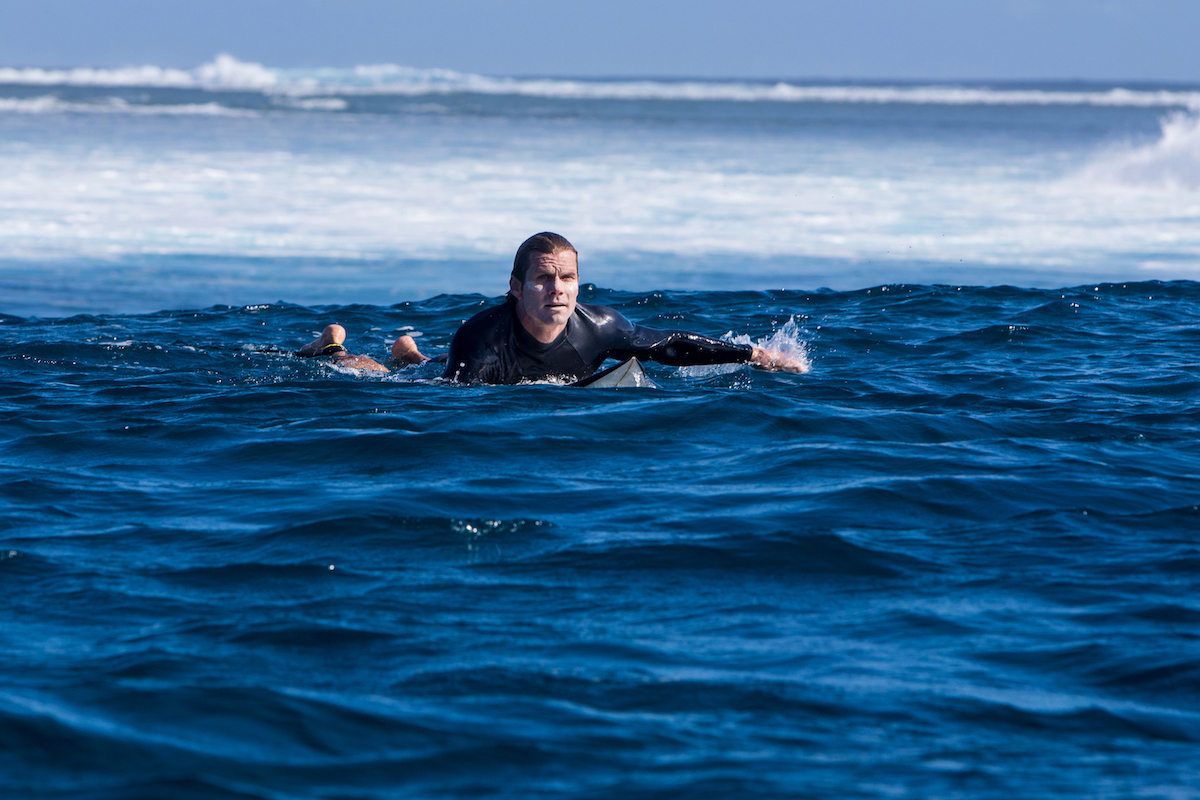Meet Dr. Jamie Gove, the Surfing Scientist
UCSB Grad Got His Start Exploring Channel Islands Kelp Forests

Surfer and scientist Dr. Jamison Gove, a UCSB grad and NOAA oceanographer, spends much of his time submerged in saltwater. Though he now calls the waves of Hawai‘i’s North Shore his home break, it was the countless hours spent diving the kelp forests of the Channel Islands that set him on a career path of conservation and aquatic study.
Recently, Gove has been researching the buildup of microplastics in the bellies of baby fish. While the current pandemic has dampened his work in terms of both funding and the obvious challenges of social distancing on a boat, he’s has taken the opportunity to share his team’s research with eco-minded seafarers and concerned conservationists in Santa Barbara and around the globe ― and catching some waves in between.
The shortboard enthusiast has been featured in the World Surf League’s WSL PURE podcast and National Geographic’s May 2019 issue.
Get the top stories in your inbox by signing up for our daily newsletter, Indy Today.
What initially drew you to the Santa Barbara area and UCSB?
I grew up around the ocean. Surfing, swimming, and diving shaped my identity. UCSB seemed like a place where I could balance the intensity and importance of academics with my love for ocean sports. Their Environmental Studies program was a great home for me. It was [during] my time in Santa Barbara that I began to understand I could pursue a life exploring and studying the ocean, the thing I loved the most, and get paid for it.
How did your time in the waters of the Channel Islands influence your career path?
The Channel Islands is where I learned to scuba dive. I remember so vividly diving in the kelp forests. It provided so much more time to observe the minutiae of the ecosystem in ways I had never experienced. I’ve done thousands of dives for my job since then. That experience in the Channel Islands propelled me into this career path.
As a surfer and a marine scientist, how do those two things intersect for you?
I got a job with NOAA straight out of college doing coral reef conservation work in the Northwestern Hawaiian Islands. Diving in the most remote island chain in the world and experiencing an ecosystem filled with such diversity and color was life-changing. I knew I had to study reefs after that. Plus, the warm water was also a draw ― definitely better than diving in a wetsuit and freezing all day!
What effect do you anticipate the COVID pandemic to have on our oceans?
It will take some time to fully understand whether the changes in society associated with the pandemic translate to changes in ocean health and marine life. There are a number of studies happening right now to document this. For example, researchers are looking at the behavioral changes of fish in a marine-protected bay in Hawai‘i. It was closed to ocean-goers and snorkelers for a number of months due to COVID. [But] whatever changes have occurred are likely to be temporary if we simply return to normal daily life post-pandemic.
What are a few small changes people can make that have the biggest impact on ocean health?
Many decisions we make on a day-to-day basis influence the natural environment. Everything from the amount of meat you consume to your commuting habits [have] a substantial impact on this planet. I would strongly suggest that you vote for your priorities. If clean water, healthy ocean ecosystems, and fighting climate change are at the top of your list, then vote for someone that will prioritize these issues.
Favorite place to surf in Santa Barbara?
The usual spots that work when it’s pumping: Rincon, Sand Spit…. Campus Point was obviously a go-to for me, so I surfed that a lot. I’ve also gotten lucky enough to surf a few mysto spots up north that rarely break. It’s a very special and beautiful coastline, no doubt about that.
Every day, the staff of the Santa Barbara Independent works hard to sort out truth from rumor and keep you informed of what’s happening across the entire Santa Barbara community. Now there’s a way to directly enable these efforts. Support the Independent by making a direct contribution or with a subscription to Indy+.



